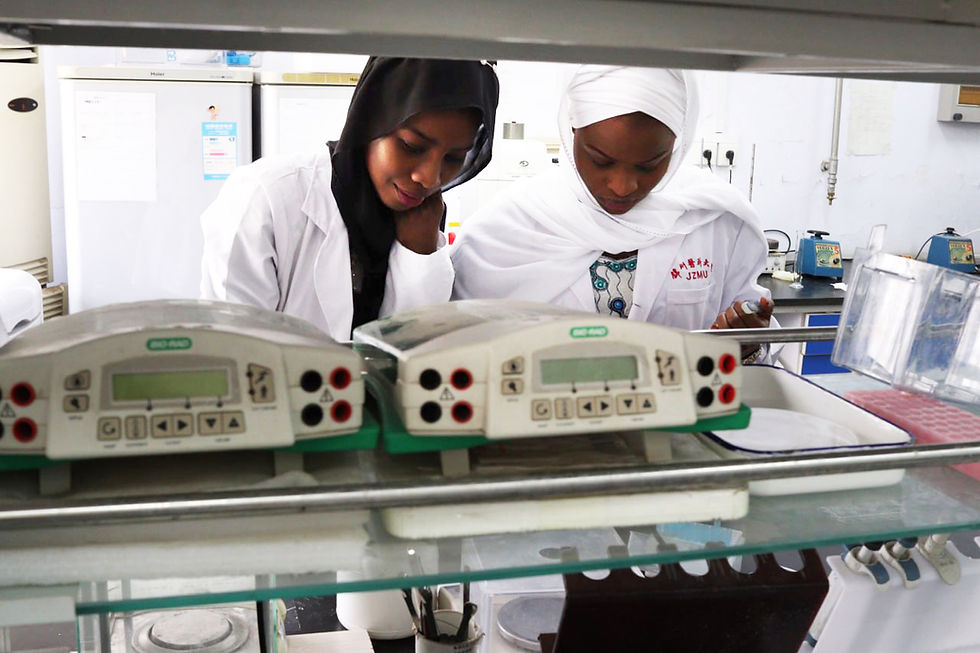Revolutionizing Medical Education: The Role of AI in Smarter Learning
- edicineindia
- Jun 12, 2025
- 3 min read
The artificial intelligence revolution is no longer a distant forecast; it's a present-day reality reshaping every industry, and the intricate world of medical education is no exception. For a field built on precision, continuous learning, and human connection, AI presents both a profound opportunity and a challenge to be navigated with care. Within India's forward-thinking Competency Based Medical Education (CBME) framework, AI is not just an add-on but a core component of a "smarter" learning ecosystem, designed to forge the physicians of tomorrow.
This article explores how AI is revolutionizing medical training and how platforms like Edicine are harnessing its power responsibly.
AI: From Optional Tool to Core Competency
The first sign of any true revolution is when a new technology becomes a fundamental skill. The revised CBME Curriculum officially codifies this shift. It mandates that all medical learners, as part of their initial Foundation Course, must acquire enhanced skills in information technology and artificial intelligence. This places AI literacy on par with foundational medical sciences.
Beyond this baseline, medical colleges can now offer specialized electives in "Artificial intelligence and computers in Health and Medical Education," allowing students to delve deeper. The message is clear: the future medical graduate must be as comfortable interpreting an AI-driven diagnostic report as they are reading a patient’s chart.
AI-Powered Platforms for Enhanced Learning
The true power of AI in education is realized through platforms designed to augment the learning process. Edicine’s Learning Augmentation System (ELAS) is a prime example of this synergy. As a cloud-based Learning Management System (LMS) and Content Management System (CMS) built exclusively for the CBME curriculum, ELAS uses AI to make learning more efficient, personalized, and effective.
Intelligent Performance Analytics: ELAS utilizes AI-based analytics to track, evaluate, and monitor a student's academic growth. This provides both students and faculty with a clear diagnosis of individual strengths and areas needing improvement, enabling targeted support and fostering self-directed learning.
Unprecedented Efficiency: The platform significantly reduces the administrative burden on the entire academic ecosystem. It can cut down the work hours for teachers in preparing materials by 30-40%, reduce the time students spend compiling notes by around 40%, and slash the clerical effort for HODs and Deans in documenting student performance by nearly 50%.
Balancing the Tech with the Human Touch
As we integrate these powerful tools, we must address a crucial concern voiced by the National Medical Commission (NMC). The foreword to the CBME curriculum wisely cautions that the "Increasing influence of artificial intelligence... has led to increasing risk of losing social intelligence and humane approach amidst the emerging doctors. The risk of creating overqualified clerks looms large on our medical system."
This is the central challenge of our time: how do we adopt technology without losing our humanity?
The answer lies in using AI to enhance, not replace, human interaction. By automating repetitive and time-consuming tasks—like material compilation and performance documentation—platforms like ELAS free up invaluable time for both educators and students. This reclaimed time can be dedicated to what truly matters: mentorship, developing clinical reasoning through discussion, practicing empathetic communication, and fostering the critical thinking skills that no algorithm can replicate. In essence, we let technology handle the "clerk" work, so humans can become better doctors.
Smarter Assessment for Future-Ready Graduates
AI is also transforming assessment. ELAS includes a secure Question Bank for Competency Based Assessment (CBA) with customizable exams. It offers applied MCQs complete with detailed explanations and rationalizations, providing immediate, intelligent feedback that turns every test into a learning opportunity. This is vital for preparing students for the rigorous, application-based format of the National Exit Test (NExT).
Ultimately, the goal of integrating AI into medical education is to produce "multidimensional, contextual and developmental" competent physicians. The revolution is not about creating doctors who can code, but about creating doctors who can leverage technology to provide more efficient, effective, and deeply compassionate care. Edicine is committed to leading this charge, ensuring that the future of medicine is both brilliantly intelligent and profoundly human.



Comments